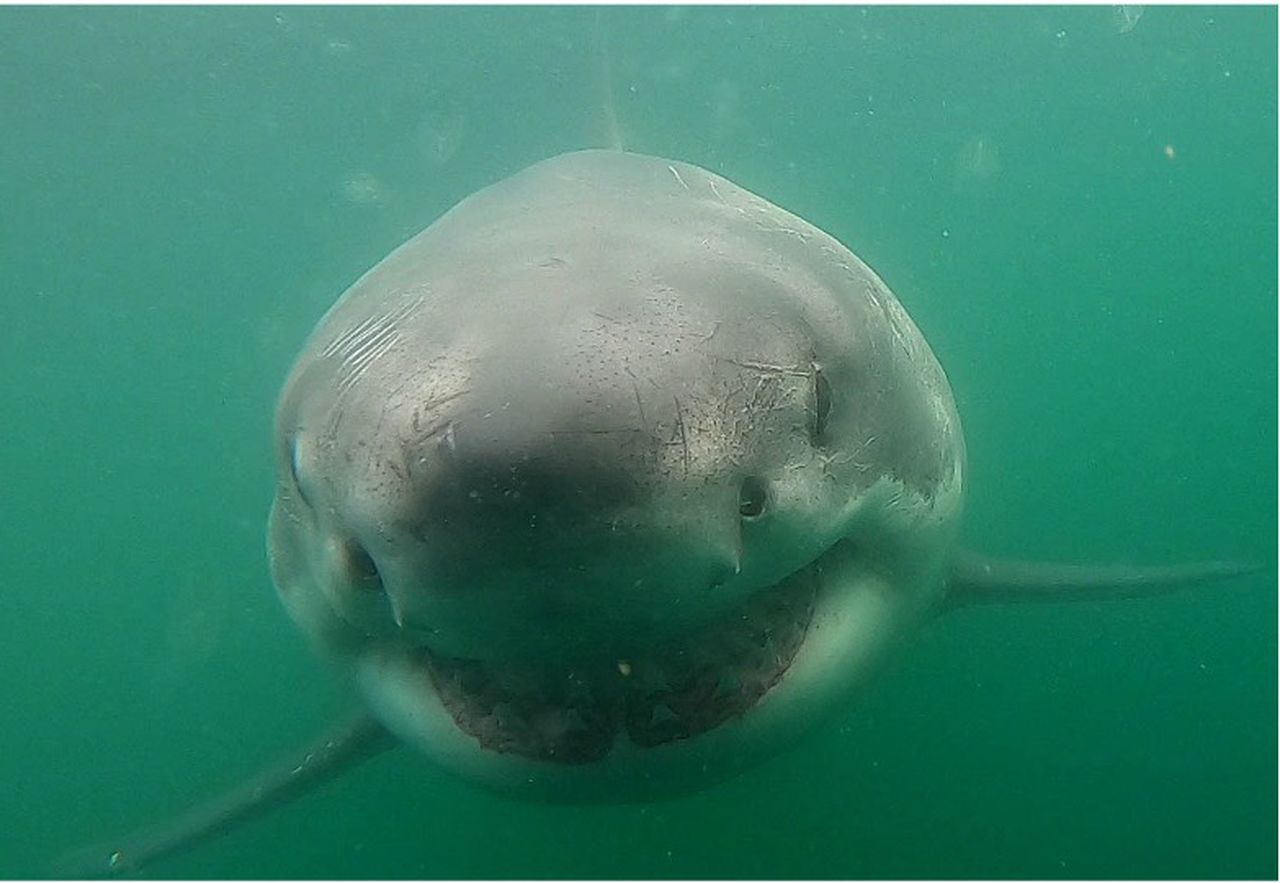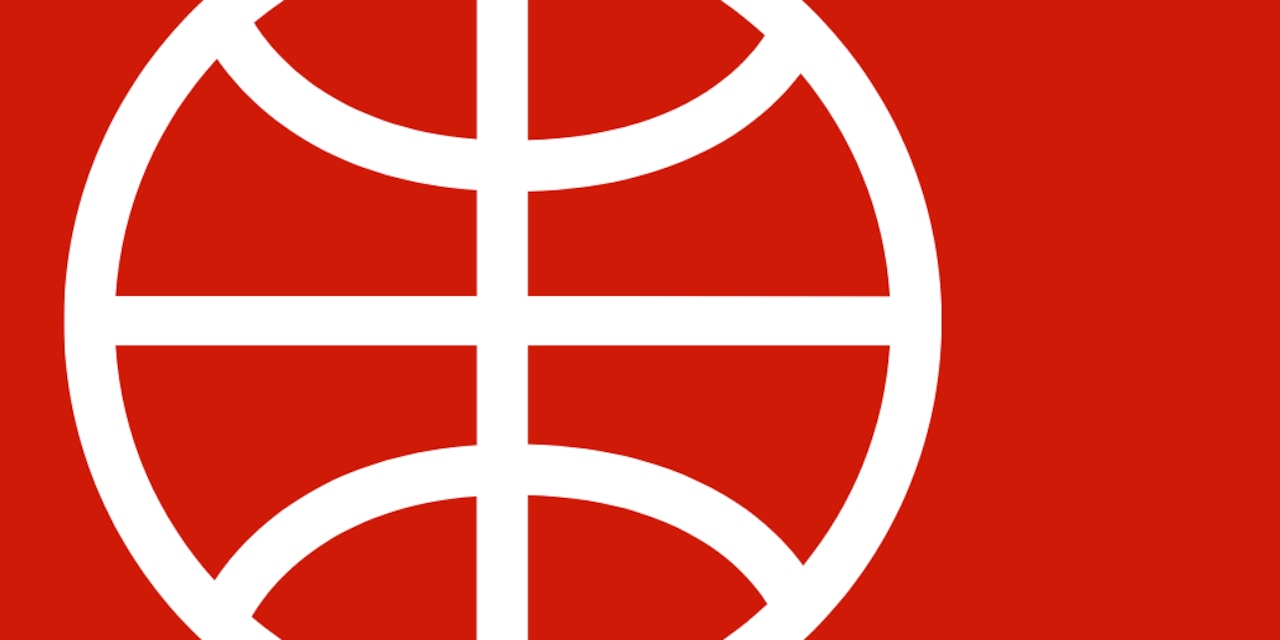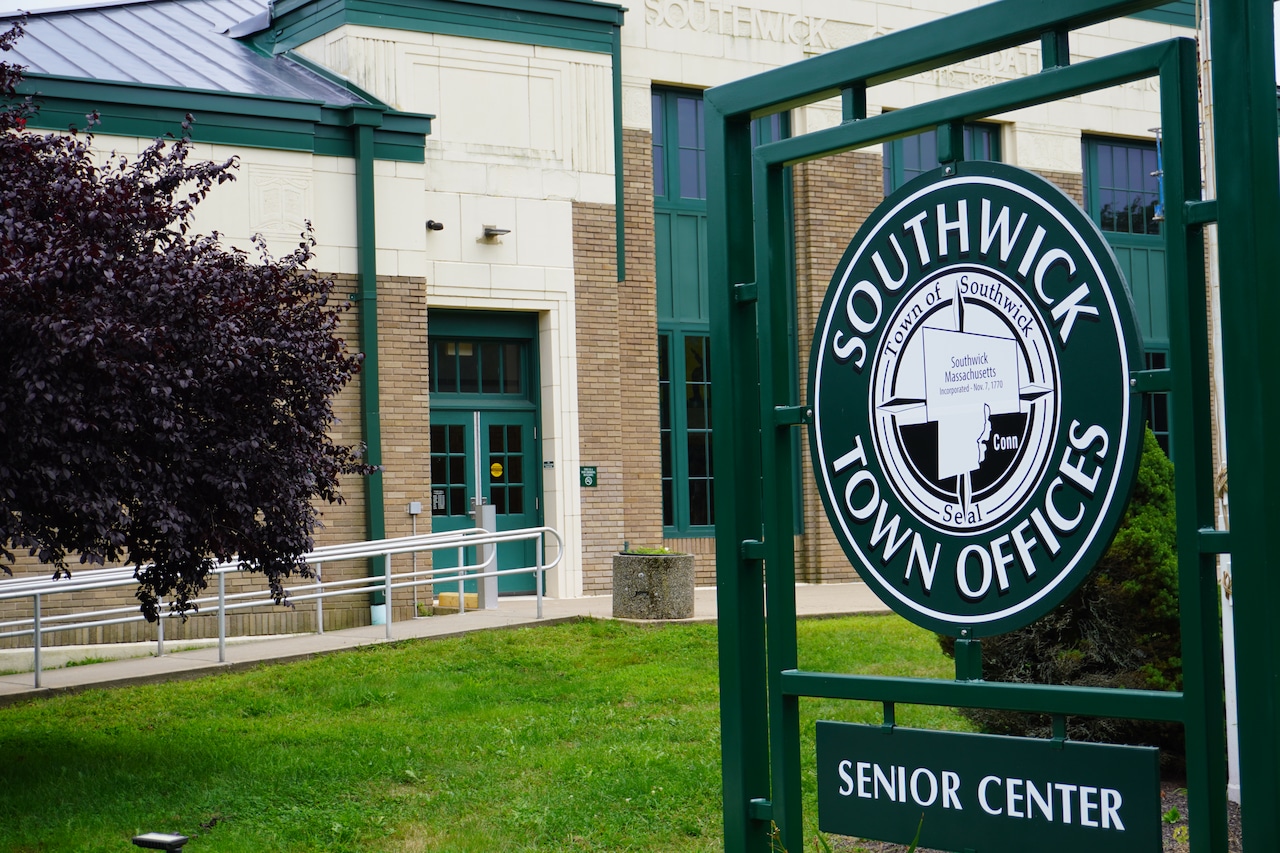After surfers off of Cape Cod had a “close call” with a white shark Saturday, the Atlantic White Shark Conservancy is reminding people that sharks are still there.
“Yesterday 2 surfers had a close call with a white shark off Coast Guard Beach. Thankfully they weren’t physically harmed but this is an important reminder to stay vigilant,” the conservancy wrote on X, formerly known as Twitter. “It is still white shark season and some will remain into the winter months….”
Peak season for white sharks near Cape Cod is from August to October. In the late fall, the sharks will often migrate to coasts off of the southeastern U.S. and the Gulf of Mexico. White sharks larger than 9 feet “move into the open Atlantic to as far as the Azores, while diving to depths as great as 3,000 ft,” according to the Massachusetts Division of Marine Fisheries.
However, that doesn’t mean all the sharks leave Cape Cod coasts right at the end of October.
The sharks are drawn in to the Cape for the immense seal population, Greg Skomal, the Senior Fisheries Scientist at Massachusetts Division of Marine Fisheries previously told MassLive, citing legislation such as the Marine Mammal Protection Act as to how the seals have restored their numbers over the years to previous abundance after being nearly hunted to extinction throughout Massachusetts, the rest of New England and Canada.
“If you were around maybe 100 years ago, maybe 200 years ago, you would have seen seals all over the Cape beaches, because this is their natural habitat. Now that we’ve brought them back, [the sharks are also] obviously going to be in their natural habitat, which is the Outer Cape,” Skomal said.
Each year, the sharks return to off of Cape Cod, which researchers have been tracking.
Sightings often begin going up in May with researchers beginning their work in the waters in July.
Once on the water, the researchers’ main duty will be applying two to three different types of tags, including acoustic, satellite and camera, to the sharks they detect, Skomal said. They will also be cataloguing fish, checking shark tag receivers and deploying real-time receivers.
“We’re using this technology to enhance public safety, that’s ultimately our goal; we’re really focused on that,” Skomal said, explaining the data collected from the tags is information used to protect the public and their aquatic activities.
Sharks can be tracked using the Sharktivity app.

Julius is a 17 foot female shark first tagged on Aug. 16, 2021.Atlantic White Shark Conservancy
The shark near the two surfers was the only shark sighting over the weekend. However, there were multiple sharks pinged along the Cape over the past week, including Julius.
Julius is a 17 foot female shark first tagged on Aug. 16, 2021. She has since been pinged in the area 189 times. And is most often off of the Cape Cod National Seashore.





